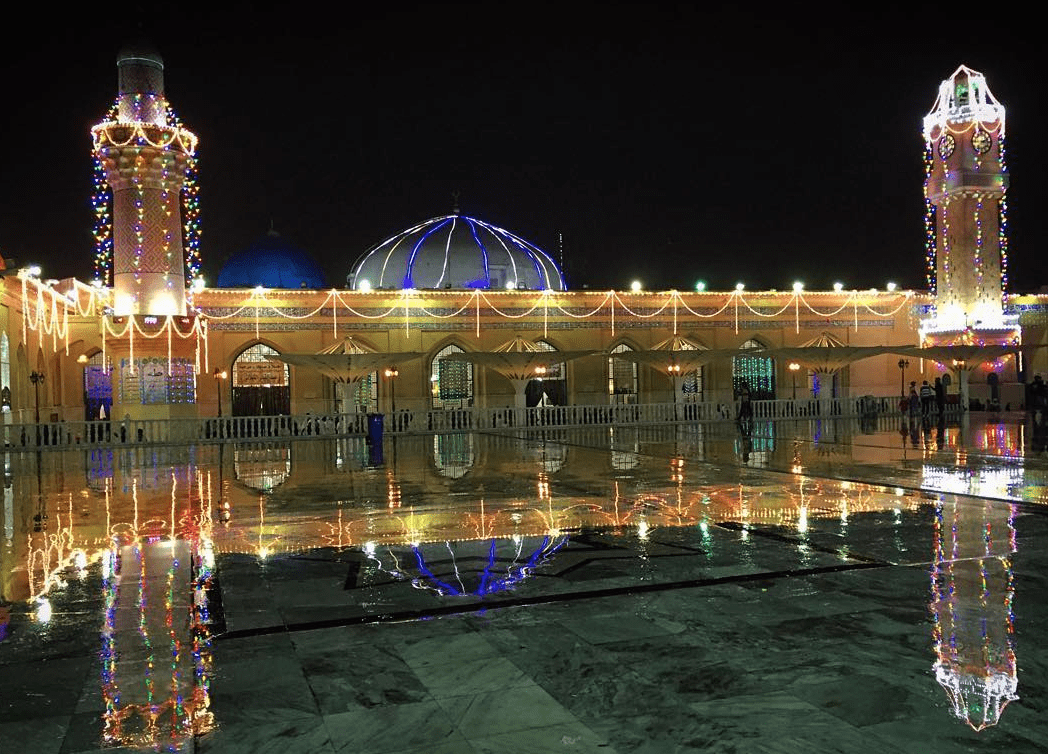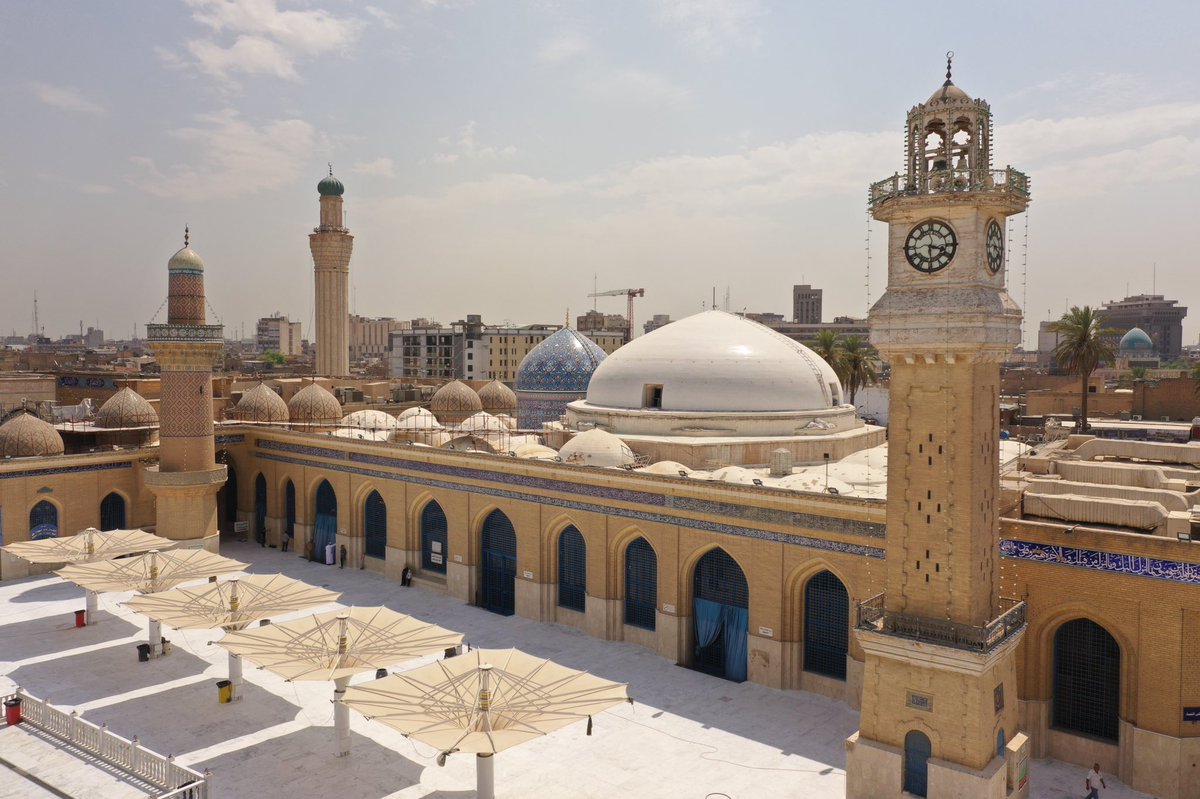Mailing List
Sign up for our mailing list to get latest updates and offers.
Mausoleum of Abdul-Qadir Gilani is an Islamic religious complex dedicated to Abdul Qadir Gilani, the founder of the Qadiriyya Sufi order, located in Baghdad, Iraq. Its surrounding square is named Kilani Square. The complex consists of the mosque, mausoleum, and the library known as Qadiriyya Library, which houses rare old works related to Islamic Studies. The son of the entombed scholar, Abdul Razzaq Gilani, is also buried there.
Abdul Qadir Gilani was a Hanbali scholar, preacher, and Sufi leader who was the eponym of the Qadiriyya, one of the oldest Sufi orders. He was born in 1077 or 1078 in the town of Na'if, Rezvanshahr in Gilan, Persia, and died in 1166 in Baghdad. Gilani carried the epithet Baghdadi, referring to his residence and burial in Baghdad. He was also known as Gauth Al-Azam. The complex was built near the Bab Ash-Sheikh) The Sheikh's Gate) in Al-Rusafah, on the east bank of the Tigris. Al-Rusafah also contains the mosque of the founder of the Hanbali school of thought, Imam Ahmad ibn Hanbal.

Al-Gilani died in 1166 and was buried in Baghdad. His urs (death anniversary of a Sufi saint) is traditionally celebrated on 11 Rabi' Al-Thani. During the reign of the Safavid Shah Ismail I, Gilani's shrine was destroyed. However, in 1535, the Ottoman emperor Suleiman the Magnificent had a dome built over the shrine.
Shaykh Abdul Qadir Gilani converted thousands of people to Islam through his compassionate and inclusive approach to Inner purification and devotion towards Allah. His emphasis on inner purification, divine love, and ethical living resonated deeply with many followers from diverse backgrounds.
One of Shaykh Abdul Qadir Gilani's most significant contributions was the establishment of the Madrasah Al-Qadiriyya in Baghdad. The curriculum included the study of the Qur'an, Hadith, Fiqh, and Tasawwuf, providing a comprehensive religious education.
The influence of Shaykh Abdul Qadir Gilani extended to political and military leaders of his time. Prominent figures such as Nur ad-Din Zangi and Salahuddin Ayyubi were known to follow the principles advocated by the Shaykh, which contributed to their own reforms.
